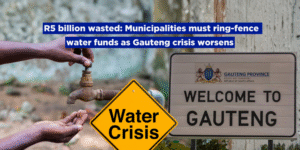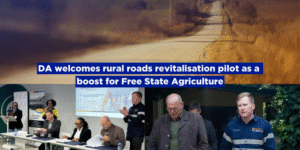- The DA is holding a comprehensive Policy Conference to finalise key positions for its Local Government Election manifesto.
- Delegates are deciding policies on environment, healthcare, immigration, SOE boards, and AI use.
- The Conference will confirm the DA’s opposition to the District Development Model.
The Democratic Alliance has convened an extended Federal Council meeting today, to debate and decide on key policy positions including the framework of our Manifesto for the Local Government Election.
The extended Federal Council sits today as a Policy Conference, and is a forum comprising DA Members of Parliament, Provincial Legislatures, Members of the Federal Executive, DA Councillors and DA branch members from across the country.
The Policy Conference sets the DA soundly on course to the election, as the first party out of the blocks now preparing our manifesto, and having been the first to have begun candidate selection.
In addition to the framework for the upcoming Local Government Manifesto, delegates will debate and decide on the DA’s Environment Policy, for a plan to protect South Africa’s water, air, biodiversity, and natural resources, and promoting environmental awareness and economic opportunities.
The DA’s Policy Conference will also consider a position paper on addressing illegal immigration and border management.
Delegates will decide on the DA’s Health Policy, which supports universal healthcare coverage that is affordable and sustainable.
To address corruption, nepotism and cadre deployment to State Owned Entity boards, the DA’s Policy Conference will decide on a position regarding the appointment of SOE board members.
The Policy Conference will also take an innovative position on a most contemporary question, being the responsible use of artificial intelligence in government, and public life, and responding to the risks of it replacing jobs.
The Policy Conference will also make it formal DA policy that we oppose the District Development Model, which undermines local government and adds a new layer of central government control which the constitution does not envisage.
The DA will provide a full set of outcomes of the final policy positions arrived at and voted on, after the Policy Conference concludes.




